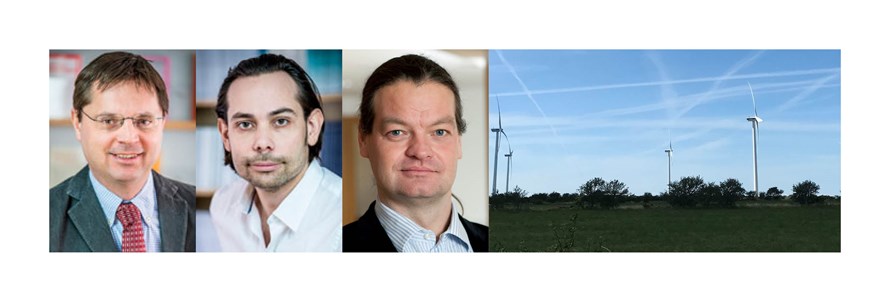– Previously, we focused a lot on competition issues in the electricity market. Now it is important to better understand the consequences for the energy supply of the large investments made especially in wind power in light of the transition towards a society less reliant on fossil energy. The new name better describes our current research, explains Thomas Tangerås, program manager for the research program Sustainable Energy Transition.
Ecological and economic sustainability
A sustainable energy transition aims to drastically reduce fossil fuel consumption. It also means that the energy supply is resource-efficient and reliable. Thomas Tangerås explains that an ecologically sustainable energy supply demands that the world reduces its fossil fuel consumption. One of the solutions is to increase electrification in transport and industrial processes. But electricity generation and heating are also the world’s largest sources of greenhouse gas emissions. To combat climate change, society must, therefore, increase non-fossil electricity generation. In Sweden, the goal has been set to 100% renewable electricity generation by 2040.
Energy supply needs to be ecologically sustainable, at the same time it needs to be economically sustainable, being resource-efficient, and reliable. However, there is disagreement about what a sustainable energy system looks like. Many countries phase-out nuclear power, whereas China and other countries with fast-growing electricity demand see nuclear power as a key component of future electricity supply. Important questions, therefore, revolve around the future of nuclear power, says Thomas Tangerås.
Sustainable energy transition important for business
The Research Institute of Industrial Economics, IFN, pursues highly relevant research for trade and industry. Why are matters on sustainable energy transition important to businesses?
– The Swedish Parliament has set the goal to 100% renewable electricity generation by 2040. That creates concerns, especially in the energy-intensive industry regarding the costs of reaching this goal and how large shares of weather-dependent generation will affect the reliability of electricity supply, says Thomas Tangerås. He explains that the future of nuclear power is a controversial issue in this respect.
– Because the Swedish electricity market is deregulated, it is of fundamental importance for these businesses and for others to understand how these markets function, and how to prevent the energy transition from reducing the competitiveness of Swedish industries, says program director ThomasTangerås.
Three researchers with different perspectives
Three IFN researchers participate in the program. Thomas Tangerås is the Program Director. He is joined by Associate Professor/ Senior Research Fellow Pär Holmberg and Ph.D. Erik Lundin. Pär Holmberg focuses on efficient designs of electricity markets, and Erik Lundin’s main research interest is an empirical analysis of energy markets. Thomas Tangerås focuses on the regulated energy market and on policy issues.
Read more about the research program here

